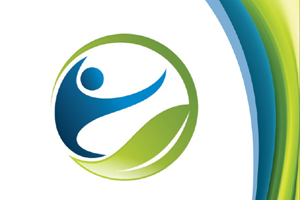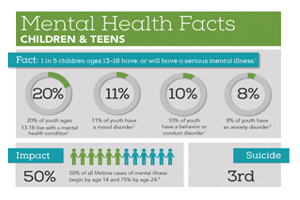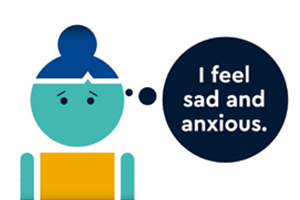Carroll Anti-Stigma Resilience Effort (C.A.R.E.)
Check out our C.A.R.E. campaign video.
Stigma remains one of the major barriers to seeking mental health treatment. Don’t be afraid to ask how someone is “really” doing. It might be a simple question but could make a difference in someone’s life!
Connect with us on Facebook:
Stigma associated with mental illness and substance abuse has been identified as a critical health issue by local health leaders Carroll Hospital, the Carroll County Health Department, and The Partnership for a Healthier Carroll County. During Key Informant and Focus Group sessions of the 2018 Community Health Needs Assessment for Carroll County (CHNA), Carroll residents indicated that stigma is a factor that can prevent people from seeking and receiving treatment.
To address this problem, the Carroll Anti-Stigma Resilience Effort (C.A.R.E.) was established in September 2018. C.A.R.E. is coordinated by The Partnership for a Healthier Carroll County.
Goal and Objectives
The goal of C.A.R.E. is to improve the lives of those struggling with a mental health or substance abuse concern by increasing knowledge, reducing discrimination, and removing barriers to treatment and recovery. We seek to dispel myths, overcome stigma, and provide tools for communicating effectively about behavioral health. Greater awareness and understanding will let those who need help obtain it within a more supportive community, and ultimately to achieve greater health and well-being.
RESOURCES
- Talk to your doctor or health care provider about unusual stress, depression, anxiety, other emotional or mental health concerns, and substance abuse issues.
- Call 2-1-1 to find local services and resources (a service of United Way of Central Maryland). Specialists will work to connect you to help if you or a loved one are depressed, suicidal, or struggling with other mental health issues.
- Mobile Crisis Response Unit (Affiliated Sante Group) – 410-952-9552
- Available 9 a.m. to 12 a.m. daily / 365 days a year.
- Mental health first responders for those who are experiencing a mental health crisis. Affiliated Sante Group offers emergency psychological assessment, and immediate intervention for individuals, family and community crisis events
- Crisis Text Line – Free, 24/7 confidential crisis support by text.
- Step 1: Text 741741
- Step 2: A trained Crisis Counselor will respond (83% in under 5 minutes.)
- Step 3: Crisis Counselor will help bring the texter from hot to cool and plan for future health and safety.
- Find a support group:
- Call Carroll Hospital Care Connect – 410-871-7000
- Dove House – 410-871-8000
- On Our Own of Carroll County – call 410-751-6600 or visit OnOurOwnofCarrollCounty.org
- Depression and Bipolar Support Group – 443-732-0015
- NAMI Carroll County – 410-857-3650 or visit NAMIccmd.org
- What About Us family support group – meets every Thursday evening at 6:30 p.m. at the Triangle Recovery Club, 2 Court Street, 2nd Floor, in Westminster
- Take a FREE Mental Health First Aid class:
- Mental Health First Aid is an 8-hour course that teaches how to help and respond to someone who may be experiencing a mental health or substance use crisis. Mental Health First Aid is an evidence-based program offered free of charge through a partnership between the Carroll County Health Department and Carroll Community College. Register at carrollcc.edu/instantenrollment or call 410-386-8100
- National Suicide Prevention Lifeline – 1-800-273-TALK (8255)
- Carroll County Health Department Bureau of Prevention, Wellness, and Recovery – CCHD.maryland.gov – 410-876-4449
- The Bureau of Prevention, Wellness, and Recovery is the local behavioral health authority able to connect you with Service Coordinators and refer to urgent care. Works closely with Access Carroll, Inc., which provides quality integrated health care services for low-income Carroll County residents. Programs include the Continuum of Care’s Shelter Plus Care Program, Homeless ID Project, Consumer Support Services, and Peer Support, and Services Early Screening, Decision-Making, Assessment, Referral, Treatment (E-SMART), and others. Also provides substance abuse prevention services and education to reduce overdoses in the community.
- Get Connected Family Resource Center (a program of Mosaic Community Services) – mosaicinc.org/programs-services/get-connected – 410-871-0008
- A free resource to assist families in learning about, navigating and managing systems of care as they become empowered advocates for their children. Navigators use databases to locate services in mental health, developmental disabilities, basic needs, health education, substance abuse, learning difficulties and other needs. Get Connected can provide information regarding accessibility, insurance and fees of programs, waiting lists and similar information for children and their families.
- Carroll County Public Library Community Directory – www.community.carr.org
- A searchable online directory with information on a wide range of local programs and resources.
- NAMI Carroll County – www.namiccmd.org – 410-857-3650
- NAMI Carroll County is dedicated to giving support and information to people with mental illnesses and their families. Support groups are offered to people with mental illnesses, their family members and caregivers, and community members.
- Children’s Mental Health Matters! – childrensmentalhealthmatters.org
- The goal of Children’s Mental Health Matters! is to raise awareness of the importance of children’s mental health. Each year, Children’s Mental Health Matters! focuses on children’s mental health and well-being with over a week of events, workshops, media, and other awareness-raising outreach.
- Behavioral Health Resources and Services Directory
- In 2003 The Partnership produced the first Substance Abuse Resource Directory. The committee that maintains this Directory is formed of expert professionals and representatives from area agencies that specialize in behavioral health. The Directory is now in its fifth edition, and the resource’s scope and format have been expanded to include local resources and services for both substance abuse and mental health. The Directory is available both electronically, and as a printed booklet.







